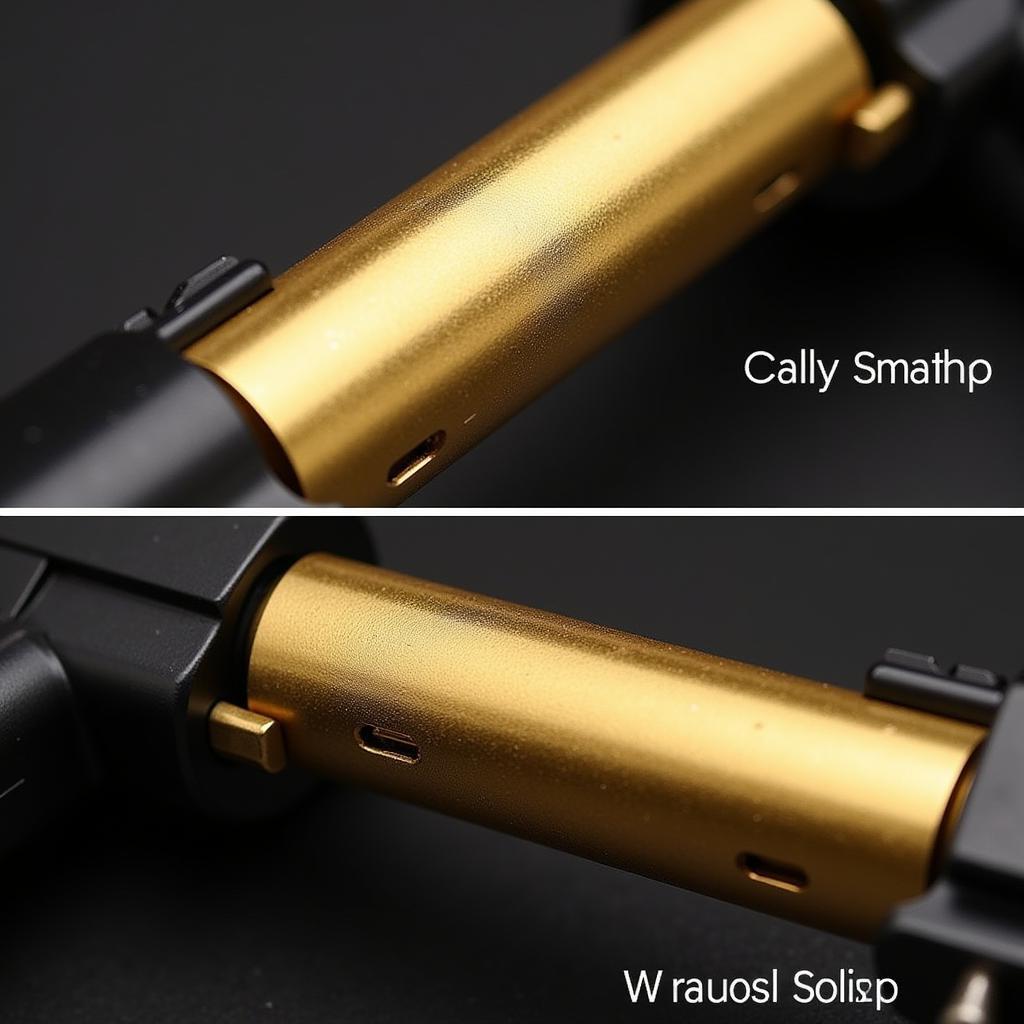Gold Plate Gun Parts: A Comprehensive Guide
November 6, 2024Gold plating gun parts is a popular practice for both aesthetic and functional reasons. It adds a touch of luxury and can enhance the performance and longevity of firearms. This guide delves into the intricacies of gold plating gun parts, exploring the benefits, processes, costs, and legal considerations involved.
The Allure of Gold Plated Gun Parts
Why do people choose to gold plate their firearms? The reasons are multifaceted. Gold plating can protect against corrosion, reduce friction, and improve conductivity. Aesthetically, it adds an undeniable touch of elegance and prestige. Some view it as a form of personalization, transforming their firearm into a unique statement piece. For collectors, gold plating can significantly increase the value of a rare or antique firearm.
For competitive shooters, the reduced friction offered by gold plating can be a significant advantage. It allows for smoother operation and can even enhance accuracy. In humid environments, the corrosion resistance provided by gold plating is crucial for maintaining the firearm’s functionality and longevity.
 Gold Plated Gun Slide: Enhanced Performance
Gold Plated Gun Slide: Enhanced Performance
The Process of Gold Plating Gun Parts
Gold plating involves electrochemically depositing a thin layer of gold onto the surface of the gun part. This process requires specialized equipment and expertise. The part is thoroughly cleaned and prepared before being immersed in a gold-plating solution. An electrical current is then passed through the solution, causing the gold ions to bond with the metal surface of the gun part.
There are different types of gold plating, including 24k, 18k, and 14k gold. The purity of the gold affects the color, durability, and cost of the plating. 24k gold provides the purest, richest gold color, while 18k and 14k offer increased hardness and durability due to the presence of other metals in the alloy.
Cost and Legal Considerations of Gold Plating Gun Parts
The cost of gold plating varies depending on the size and complexity of the part, the type of gold used, and the labor involved. It’s important to obtain quotes from reputable gold plating services specializing in firearms.
Legally, gold plating firearms is generally permitted in most jurisdictions. However, it’s crucial to be aware of any specific regulations that might apply in your area. For example, some states may have restrictions on the type of firearms that can be gold plated or the percentage of gold that can be used.
“Understanding the legal landscape surrounding firearm modifications is paramount,” advises John Smith, a firearms expert and legal consultant with over 20 years of experience. “Always consult with local authorities to ensure compliance with all applicable laws and regulations.”
Gold Plating vs. Other Finishes
Gold plating isn’t the only option for enhancing the appearance and performance of gun parts. Other popular finishes include nickel plating, bluing, and Cerakote. Each finish offers unique benefits and drawbacks in terms of cost, durability, and aesthetics.
Nickel plating provides a silver-colored finish that is highly corrosion-resistant and durable. Bluing is a traditional chemical process that creates a dark blue or black finish, offering good corrosion protection. Cerakote is a ceramic-based coating that provides excellent resistance to wear, corrosion, and chemicals, and comes in a wide range of colors.
Conclusion
Gold plating gun parts can be a compelling way to enhance both the appearance and performance of your firearm. By understanding the process, costs, and legal considerations, you can make an informed decision about whether gold plating is the right choice for you. Remember to always prioritize safety and legality when modifying your firearm.
FAQ
- How long does gold plating last on a gun? The longevity depends on usage and maintenance, but with proper care, it can last for many years.
- Can I gold plate any part of my gun? Most metal parts can be gold plated, but some parts, like the barrel interior, are not recommended.
- Does gold plating affect the value of a gun? It can increase the value of certain firearms, particularly collector’s items.
- Is gold plating difficult to maintain? Regular cleaning with a soft cloth and appropriate cleaning solutions is sufficient.
- What are the alternatives to gold plating? Nickel plating, bluing, and Cerakote are popular alternatives.
- Does gold plating affect gun performance? It can reduce friction and improve conductivity.
- Where can I get my gun parts gold plated? Research reputable gold plating services specializing in firearms.
Common Scenarios and Questions
- Scenario: You want to gold plate the trigger of your competition pistol. Question: Will this improve my trigger pull?
- Scenario: You have an antique firearm you want to restore. Question: Will gold plating increase its value?
- Scenario: You live in a humid climate. Question: Will gold plating protect my gun from rust?
Further Exploration
For more information on firearm maintenance and customization, check out our other articles on gun cleaning and modifications.
For support, contact us at Phone Number: 0915117113, Email: [email protected] or visit us at: Hamlet 3, Binh An, Phu Thuong, Vietnam, Binh Phuoc 830000, Vietnam. We have a 24/7 customer support team.